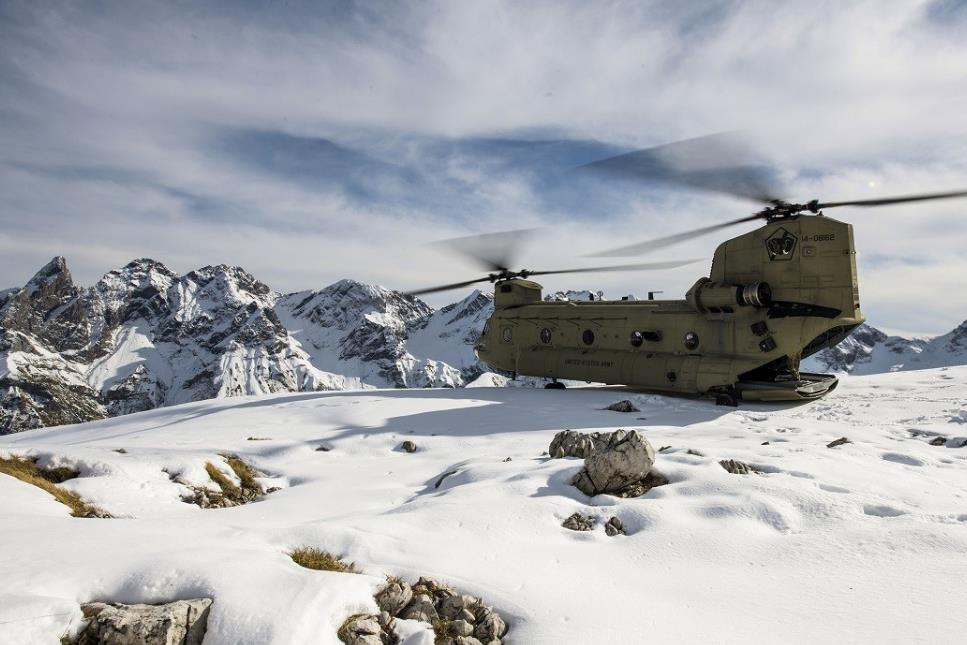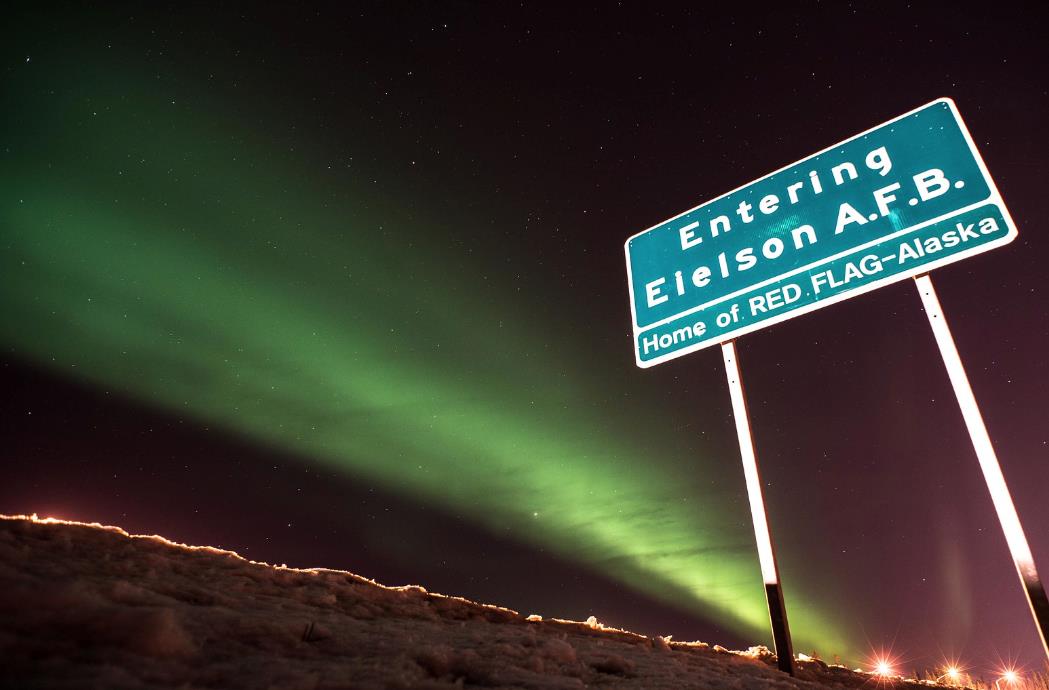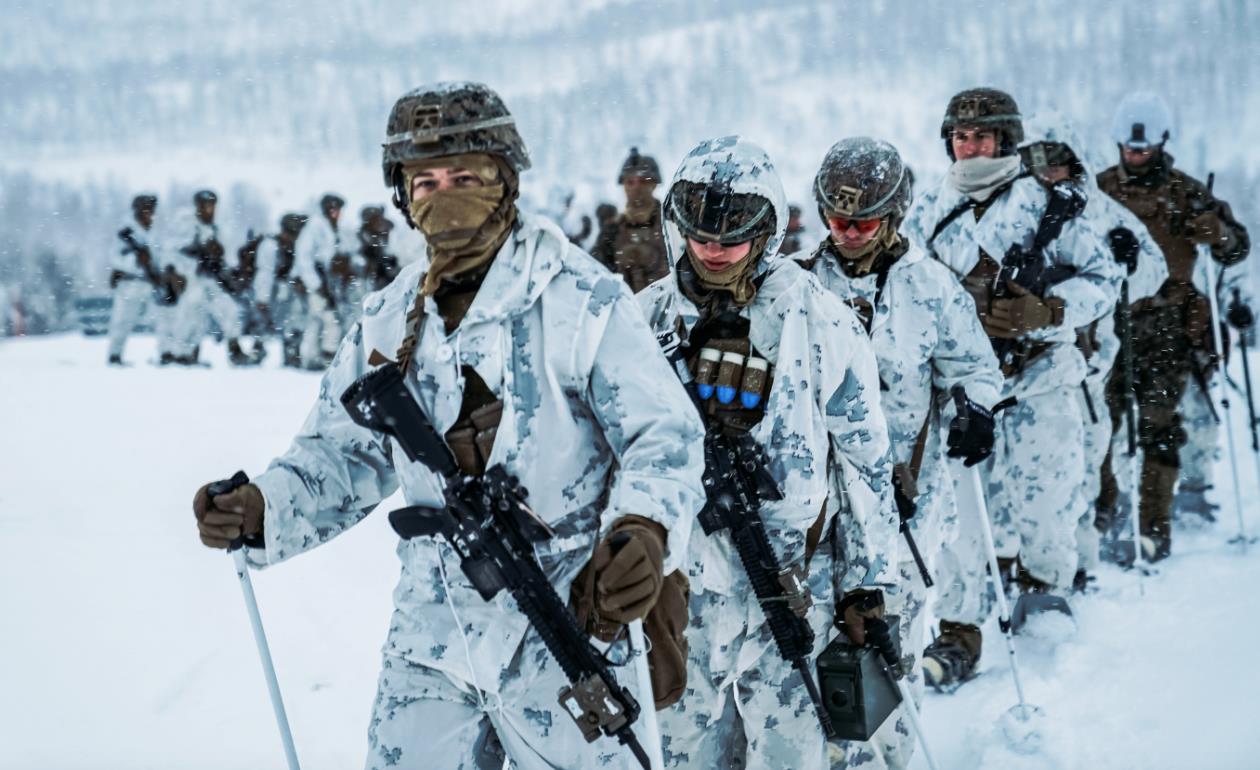
US bent on stopping The Polar Silk Road
(MENAFN- Asia Times) They say that recluse billionarie Howard Hughes' favourite movie was 1968's Ice Station Zebra.
Guarded and served by his loyal Mormon staff on the top two floors of the Desert Inn and casino in Las Vegas, he watched it over and over, while giving orders by phone to the mysterious former CIA operative Howard Hunt.
According to Wikipedia, the movie revolves around a US submarine dispatched to the frozen wastes of the North Pole to recover a Soviet satellite crammed full of strategic snapshots of US bases.
The Cold War atmosphere becomes even chillier as the sub, with a Russian expatriate, a British secret agent and an American marine captain on board, is sabotaged en route.
Starring Rock Hudson and Patrick McGoohan, in today's light, and without CGI special effects, the film doesn't quite hold up, and the premise is pure Hollywood.
Or is it? Will the Cold War extend to the Arctic?
According to a panel of Arctic security experts, to meet mounting security and economic challenges posed by Russia and China, the United States 'needs resilient people and resilient equipment,' USNI News reported .

Army CH-47F Chinook sits atop a mountain in the Alps in Germany, Oct. 21, 2020. (U.S. Army photo by Staff Sgt. Garrett Dipuma)
Moscow's vision of the Far North as 'the Russian Mecca' and Beijing's ambitious Polar Silk Road initiative present economic obstacles to the US, the experts said.
Speaking this week, retired Air Force Maj. Gen. Randy Kee said the Arctic had proven to be a region 'where technology is always challenged' by extremes.
The severe conditions make military operations 'quite demanding and quite challenging.'
This remains the case now as temperatures climb and cause sea levels to rise globally, coupled with more violent weather conditions. It also makes the Northern Sea Route, which Russia claims as its own, more attractive as a shipping route to Europe, especially for China, USNI News reported.
It opens the Arctic to more mineral and natural resource exploration and exploitation, another Chinese goal of diversifying its energy suppliers.
On the security front, Kee, now with the Wilson Center, said the best way to 'ameliorate the challenges is through partnership agreements' – such as NATO and NORAD with the Canadians – and keeping an airbase in Thule, Greenland.
(Editor's note: Ameliorate is Pentagon-military speak for making things better — I had to look it up too.)
And while exercises like Trident Juncture were important building blocks, Kee said 'we need to return to scale' on the magnitude of the Cold War's Rimfrost Exercises to address the new military situation and climate changes, USNI News reported.

The lights along the flight line at Eielson Air Force Base, Alaska, shine under the Aurora Borealis, or Northern Lights. Eielson is home to RED FLAG-Alaska, a series of Pacific Air Forces commander-directed field training exercises for U.S. forces. (U.S. Air Force photo by Staff Sgt. Shawn Nickel)
Kee, speaking during a Hudson Institute online forum , added that the services' Arctic strategies 'will categorize the challenges and opportunities' in the region.
Among those security challenges to Washington and allies are Russia's dual-track approach in the Arctic — building ports and airfields that can be used for civilian purposes for energy production and shipment, tourism and transpolar commercial shipping, as well as military power projection – according to Hudson's Richard Weitz.
'The Arctic is the fourth wall' in Russia's security thinking, he said. Unlike its western, eastern and southern borders, Moscow can operate 'without having to compete with others' in the Far North.
It is by far the largest nation in the Arctic, USNI News reported.
As a sign of how important the Arctic has become, the Kremlin is designating the region as its Fifth Military District. It has moved Mig-31 fighters into airfields there and deployed hypersonic missiles, while it is hardening coastal defense ships that are capable of operating in ice as weapons platforms.
Moreover, the Kola Peninsula is the major home port of the Russian ballistic missile submarine fleet, said Hudson's Bryan Clark.
'Monitoring for [submarine activity] is important,' but the United States Navy only operates in the Far North in the most favorable conditions, Clark said. Its surface fleet is not ice-hardened.
Russia also caused a major stir earlier this month when it deployed one of its most advanced air defense systems, the S-300V4, on a disputed northern island claimed by Japan, Nikkei Asia reported .
For several years, Moscow has been on a mission to strengthen its military presence in Northeast Asia. To counter the US, Russia has upgraded its weaponry in its Far East, commissioned new ships for its Pacific Fleet, and significantly expanded military cooperation with China.
Russia says the S-300V4 went live Dec. 1 on Iturup — known as Etorofu in Japan. The island is one of the four southern links in the Kuril Islands chain claimed by Tokyo, which refers to them as the Northern Territories.
This puts sophisticated Russian missiles on the doorstep of Hokkaido, Japan's northernmost main island.

Actor Rock Hudson, in Ice Station Zebra, a 1968 film whose biggest fan was the mysterious recluse, Howard Hughes. Credit: Handout.
Clark also noted another Russian military advantage in the Arctic.
Because satellite communications are spotty and there are few sensors in the region, a Russian electronic warfare attack 'can easily blind' the few operating there.
'They don't have a lot of resilience,' he said. Those facts make electronic warfare 'more of a concern than in other regions' that need to be addressed.
As for China's approach, Weitz said instead of being confrontational as it was six years ago by demanding recognition as a special case in Arctic affairs, Beijing is 'emphasizing win-win.'
The Polar Silk Road is pushing infrastructure investment, including laying undersea communication cables, as well as ports, airports and highways 'to build leverage' and to influence smaller nations in the Arctic like Greenland.
It has also stepped up its research and scientific efforts in the region, USNI News reported.
Howard Hughes may have been right, after all.
Asia Times Financial is now live. Linking accurate news, insightful analysis and local knowledge with the ATF China Bond 50 Index, the world's first benchmark cross sector Chinese Bond Indices. Read ATF now.

Legal Disclaimer:
MENAFN provides the
information “as is” without warranty of any kind. We do not accept
any responsibility or liability for the accuracy, content, images,
videos, licenses, completeness, legality, or reliability of the information
contained in this article. If you have any complaints or copyright
issues related to this article, kindly contact the provider above.


















Comments
No comment